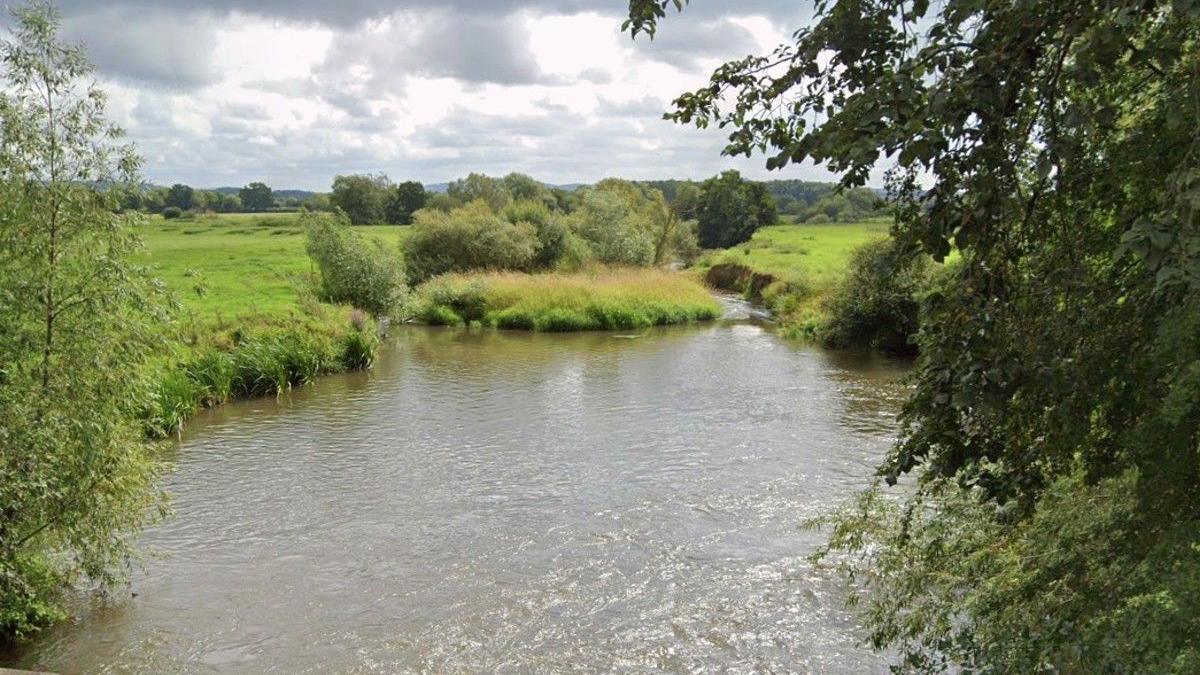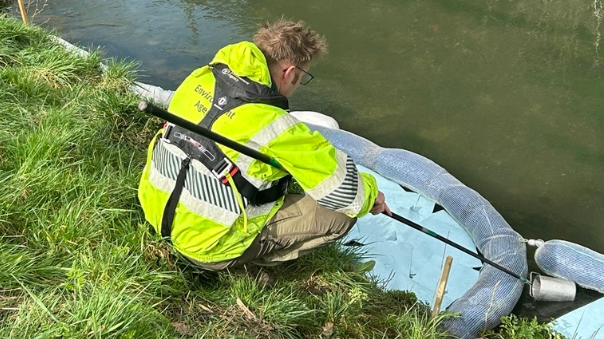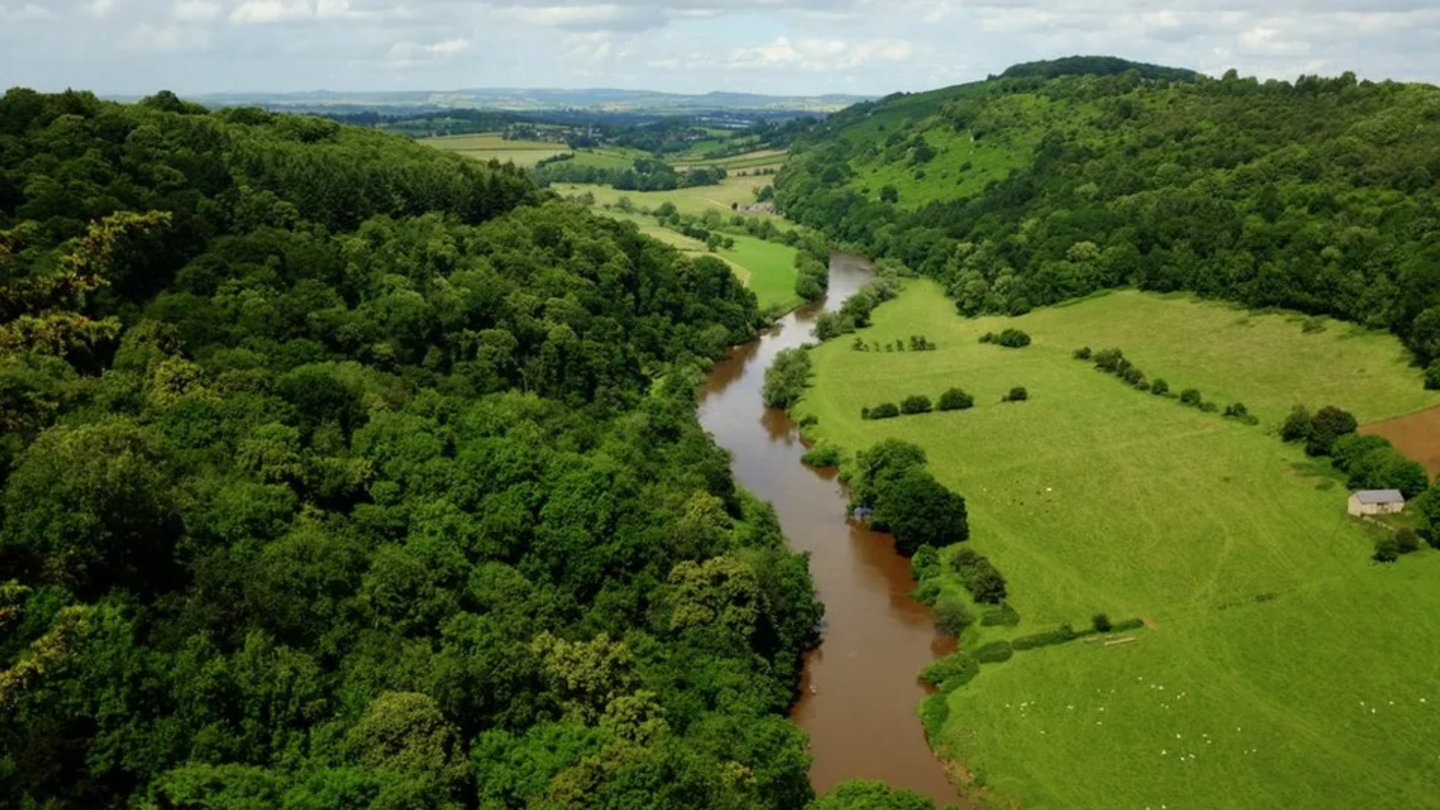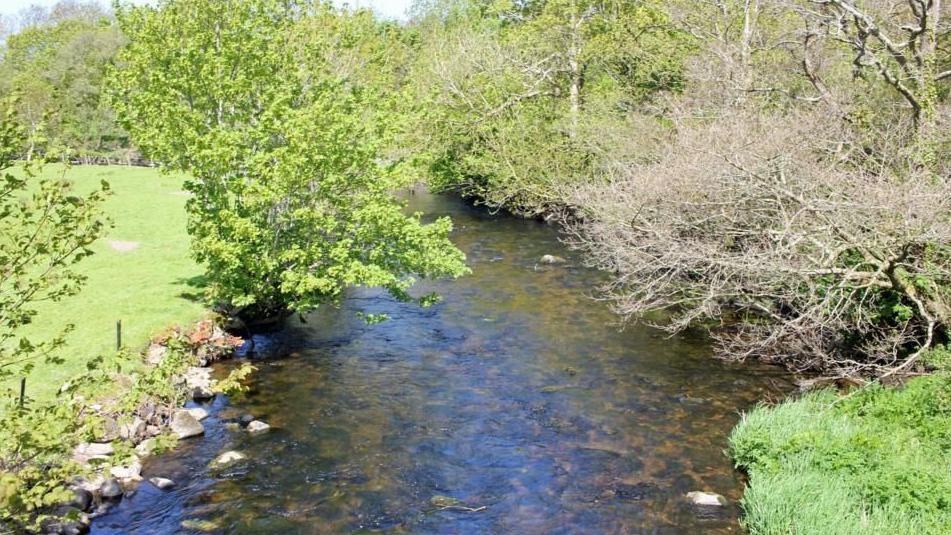River Lugg among worst for hazardous chemicals

The Lugg was among the 12 areas showing the highest numbers of biocides
- Published
The River Lugg in Herefordshire has been named as one of the worst waterways for containing hazardous chemicals known as biocides, it has been revealed.
Environmental groups Wildlife and Countryside Link (WCL) and the Rivers Trust examined official water quality data from English rivers for seven key biocides including fungicides, a herbicide and insecticides.
Seven were widespread in rivers, the study found, but the River Lugg, along with the River Teme at Powick in Worcestershire, was among the 12 showing the highest numbers of individual biocides.
The government said it was committed to tackling all sources of pollution and cleaning up the country's waterways.
In all, 119 sites were tested across England and at least one of the biocides was detected in 113 of them.
A WCL spokesman said: "The likelihood is that a substantial proportion of biocide pollution in the Lugg will be from inclusion of these chemicals in products used in agricultural settings."
He said the group was "not blaming farmers" but rather it was a "systemic issue", because the chemicals were included in "an enormous range of products".
'As harmful as sewage'
Rivers Trust director of policy and science Dr Rob Collins called the findings "alarming".
He said: "Though it's not possible from this data to determine the level of harm they are having on our rivers and wildlife, these are hazardous chemicals, designed to kill organisms."
He said chemical pollution in rivers was "just as harmful as sewage".
The groups want the government to align the regulation of such chemicals with the EU as a "quick, sensible solution to bridge the chemical protection gap in the UK", rather than bringing in deregulation.
The River Lugg flows through Leominster before joining the River Wye near Hereford.
A spokesman for the Department of the Environment, Food and Rural Affairs said: "We are committed to tackling all sources of pollution to clean up our rivers, lakes and seas.
"We have already banned the use of bee-killing pesticides that threaten to cause harm to our waterways and published the first Pesticides National Action Plan in a decade."
This news was gathered by the Local Democracy Reporting Service, which covers councils and other public service organisations.
Get in touch
Tell us which stories we should cover in Hereford & Worcester
Follow BBC Hereford & Worcester on BBC Sounds, Facebook, external, X, external and Instagram, external.
Related topics
- Published25 March

- Published16 January

- Published13 March
